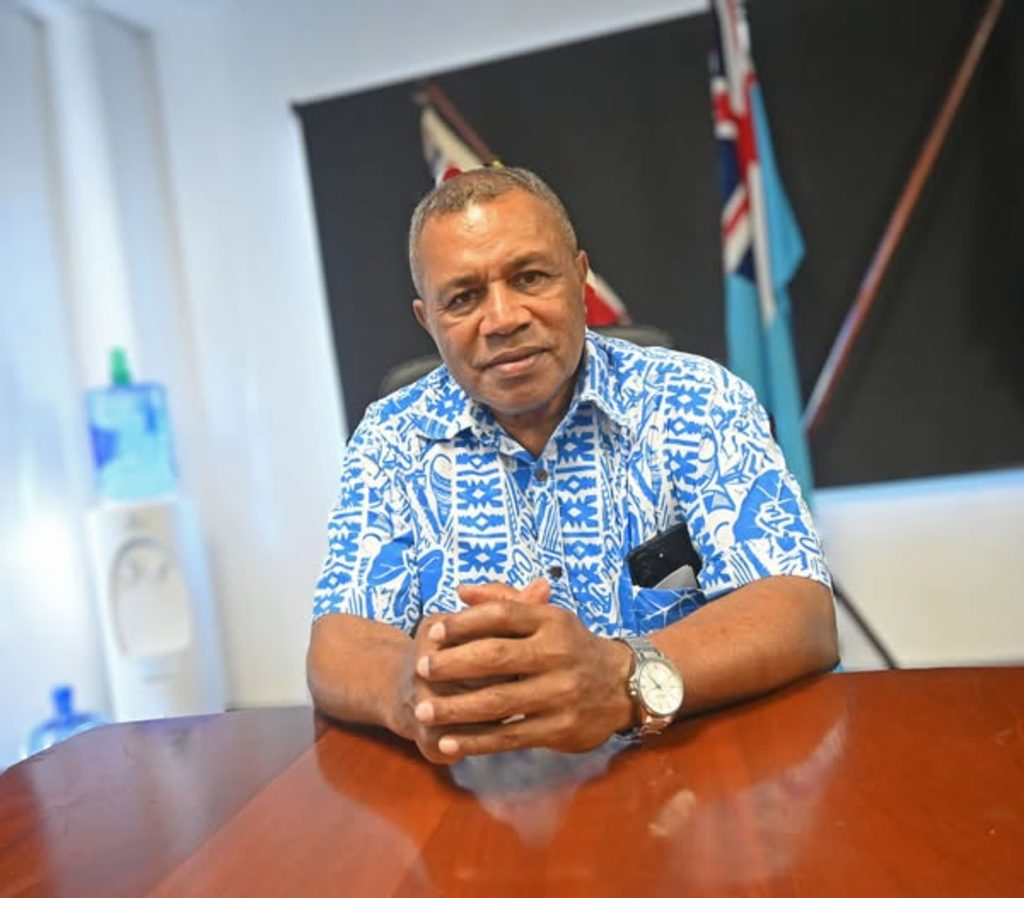AFTER more than 30-years of dedicated service in Fiji’s maritime sector, Meli Tokolauvere has officially called it a day.
He has retired from the Maritime Safety Authority of Fiji (MSAF) as the Marine Environment and Pollution Officer.
Tokolauvere’s journey began when MSAF was known as Fiji Islands Maritime Safety Administration (FIMSA). He started his career as an engineer with his previous employer.
But it was the unfamiliar field of marine environmental protection that truly piqued his interest and became his lifelong calling.
“I was interested in this line of work because the marine environment was new to me,” he recalls.
It didn’t take long for Tokolauvere to find himself at the frontlines of some of Fiji’s most challenging maritime environmental incidents. Among the many situations he handled, one memory remains etched vividly in his mind—the oil spill caused by the sinking of the vessel MV Southern Phoenix in 2017.
“I was the one who was called that night,” he says.
“The boat sunk at 3am and I got picked up at 3:20am to go and have a look at the boat. So, from there, I had to decide what to do.”
The vessel, a massive 500 metres long, posed a serious threat to the surrounding waters. In response, Tokolauvere deployed a 20-metre French boom to contain the oil—an important piece of equipment in his arsenal.
“There are different kinds of boom,” he said.
“You have the land and sea boom, the rapid boom, solid flotation booms, the pad, and the one we used for the Southern Phoenix, that was the French boom.”
What followed was an eight-month operation at sea, tirelessly skimming oil to protect Fiji’s fragile marine ecosystem.
It was a physically demanding and emotionally taxing period, but one that defined the spirit of his service.
Over the years, Tokolauvere witnessed sweeping changes in pollution response technology.
“So many changes I’ve seen. When I started, we didn’t have much equipment.”
“But during my time, new machinery came in—we got the schemer, the boom, the powerpack. I was very thankful to the New Zealand government for sending their team to teach me. At that time, I was the only one.”
His role evolved into not just learning the use of this new equipment but also leading its deployment across Fiji.
“Once they brought the new equipment in, I was the one they took to see all the machinery. Then I took the machineries to Labasa and Lautoka.”
Throughout his career, Tokolauvere remained grounded by the support of his MSAF colleagues—a part of his daily life he says he will miss the most.
“The friendliness and support from MSAF staff—that’s what I’ll miss,” he says warmly.
Now entering a new chapter of life, he’s most excited about the one thing he had to sacrifice during his years at sea: time with family.
“During my years of sailing, I’d be away at sea for months at a time,” Mr Tokolauvere said.
“Each time I came home, I’d spend maybe three days with my family, and then my wife would see me packing my bag to head back to the ship. Now, I’m really looking forward to just being with them.”
Mr Tokolauvere’s advice is simple but profound: “Do your job. Help will come.”
MSAF thanked Mr Meli Tokolauvere for his service and wished him all the best in his retirement.



